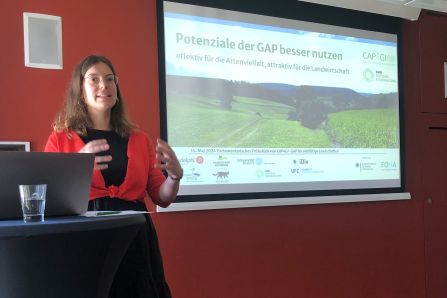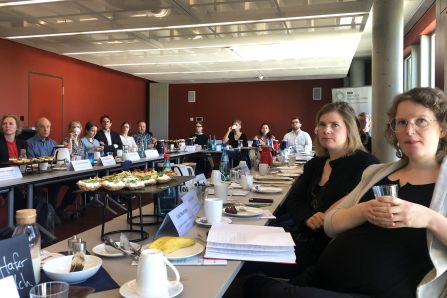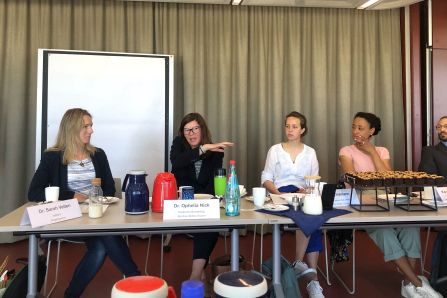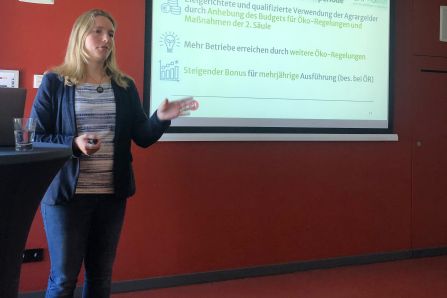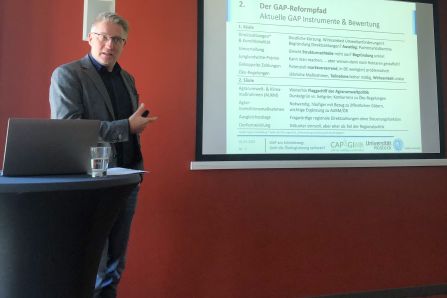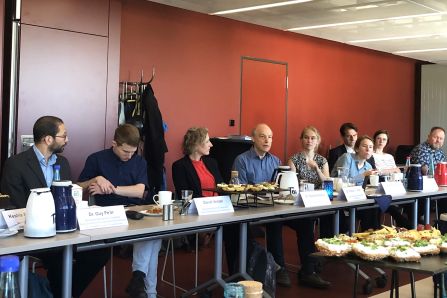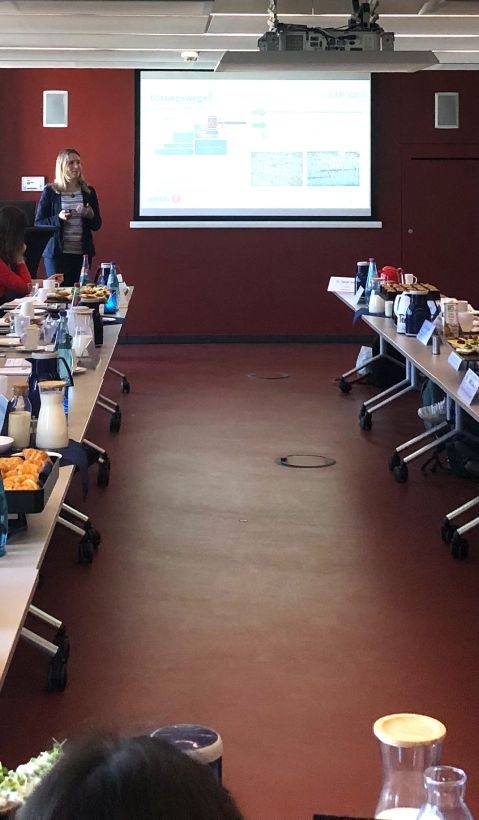
Project team presents CAP4GI recommendations to MPs and ministry
| Date |
Date
|
May 16, 2024 - The CAP4GI team presented the new policy brief at a parliamentary breakfast on May 14. The paper, entitled "Using the potential of the CAP for more biodiversity: Impulses from practice in Thuringia and Baden-Württemberg", conveys suggestions for improvement in the design of environmental measures in EU agricultural funding. At the event, the findings from the exchange platforms with farmers in the project regions were presented to members of the German Bundestag and employees of the Federal Ministry of Food and Agriculture (BMEL) and discussed with them.
The policy brief lists the central barriers to the implementation of environmental measures that are common across the project regions: "insufficient remuneration for measures", "excessive bureaucracy" and "lack of flexibility of measures and a perceived high risk of sanctions". In addition, the options favored by farmers for the future development of the Common Agricultural Policy (CAP) are named: the approach of a public goods premium and an advice-based systems. In contrast, collective models for the implementation of measures across farms met with little approval in the discussion rounds.
At her presentation of the information paper entitled Using the potential of EU agricultural funding, Dr. Sarah Velten suggested that better participation formats are needed and that the results of such processes should be taken seriously. The removal of obstacles in administrative practice and access to information and advice must also be improved. In the policy recommendations, the project partners emphasized that the policy does not provide the right answers with the currently planned weakening of minimum requirements in the CAP. Instead, more attractive and income-generating rewards for environmental services are needed - for example through extended, better equipped and multi-year eco-schemes.
In his presentation CAP at the crossroads: Is ecologization being lost? Prof. Dr. Sebastian Lakner from the University of Rostock discussed the reform path of the CAP, assessed the environmental impact of agricultural payments and took a critical look at the current decisions to reduce the environmental requirements in conditionality. According to Prof. Lakner, the organic regulations could become a "game changer" and he also discussed fundamental options for improvement. These included: the expansion of "dark green agri-environmental measures", improved "planning at landscape level", the "common good premium", "result-oriented environmental measures" and the "nature conservation manager model".
The presentations were followed by a constructive discussion with the participants from politics and authorities - moderated by Lavinia Roveran from the Deutscher Naturschutzring. In the discussion, the practice partners from the Lake Constance Foundation and Wildtierland Hainich were once again able to describe their impressions and practical challenges from the exchange platforms. The scientists from the German Center for Integrative Biodiversity Research (iDiv) shared their perspectives on current CAP developments. In the morning atmosphere of the Parliamentary Breakfast, it was thus possible to make the voices of farmers from the discussion rounds heard and to convey key policy recommendations to members of the Bundestag and the Ministry of Agriculture.

